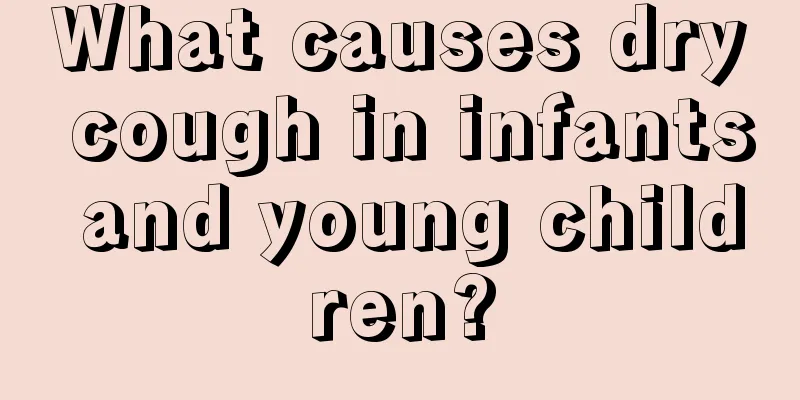Baby has diarrhea and sour smelly stool

|
Babies often suffer from the adverse reaction of diarrhea, and the cause of diarrhea is mostly caused by diet, so mothers should pay special attention to the baby's diet safety. If your baby has diarrhea and the stool has a sour and smelly watery stool, it is most likely caused by digestive tract dysfunction. At this time, the baby will have diarrhea frequently and the excrement will be sour and smelly watery stool. Let’s talk about it in detail below. Types of diarrhea in babies 1. Dietary indigestion type diarrhea: The child has symptoms such as abdominal distension, abdominal pain, loss of appetite, bad breath, etc. He often cries before diarrhea, and his stool is sour and smelly, with undigested milk lumps. 2. Wind-cold type diarrhea: The child has abdominal rumbling and pain, sometimes accompanied by fever, runny nose and other symptoms. The stool is thin, foamy, light in color and has no odor. 3. Damp-heat type diarrhea: The child has symptoms such as fever, thick and greasy tongue coating, and the stool is egg drop soup-like with a little mucus. This type of autumn diarrhea is the most common in children. 4. Spleen deficiency type diarrhea: The child suffers from long-term diarrhea, has a sallow complexion, has a decreased appetite, and has loose stools with undigested food. Judging your baby's health by the color of his stool 1. Green stool If the stool is green and watery, your baby may have indigestion or a bacterial infection. Babies who drink milk powder sometimes have yellow-green or turquoise stools. This is because the iron content in formula milk is very high. If the stool is just green and there is no change in the nature or frequency of bowel movements, the baby's health is fine. 2. White mucus in stool If your stool is dry and snotty, this is normal. If the white mucus is thick and abundant, this indicates that the baby may have a bacterial infection and needs to be checked in the hospital. 3. Blood in the stool If the bloodshot is dot-like and relatively small, and the baby is in a better mental state, it is mostly caused by allergies. If bloody stools appear suddenly and are accompanied by vomiting, this indicates that the baby may have intussusception; if the baby has bloody stools with pus, it is mostly a bacterial infection and may also be colon polyps; if the baby not only has bloody stools but is also accompanied by malnutrition and edema, this condition indicates that the baby is likely to have inflammatory bowel disease. 4. Black stool When black stools appear, if the baby is in good spirits, it may be that the baby has eaten too much complementary food containing iron supplements, pig and duck blood, and animal liver, and it is not a big deal. If the baby is in poor spirits, black stools may indicate that the baby has a peptic ulcer. |
<<: The hard lump on the child's arm after vaccination
>>: Why does a newborn baby have a big belly?
Recommend
What to do if your baby is bitten by a poisonous insect
Summer is here, and as the temperature rises, bab...
Can ADHD in children be cured?
Some parents may find that their children are ver...
What are the symptoms of ADHD in babies?
Children's physical health is the most concer...
Symptoms of normal phlegm accumulation in babies
If the baby has phlegm, he will make a "hiss...
What should I do if my child has tonsil festering and a high fever?
If a child's tonsil suppuration is accompanie...
What is the reason for the child's stomach ache?
Stomach pain is a problem that many children may ...
Is it ok to drip milk into baby's eyes?
It is said that breast milk is a panacea. When ba...
What should I do if my baby has green poop for two months?
We all know that there are always various problem...
Homemade baby biscuits that melt in your mouth
Cookies are a kind of snack that many people like...
Emergency treatment for children vomiting in the middle of the night
Many parents are particularly worried about their...
Reasons for slow response in newborns
There is a folk legend that babies born naturally...
What should we do if children have intestinal dysfunction?
Intestinal dysfunction is a very common phenomeno...
What should I do if my eight-month-old child has recurring fever?
Getting married, having children, and raising and...
Do children with calcium deficiency need to take calcium tablets?
During the infant and toddler period, if there is...
What to do if your child has a fever and says he is cold
Children often suffer from fever and cold symptom...









